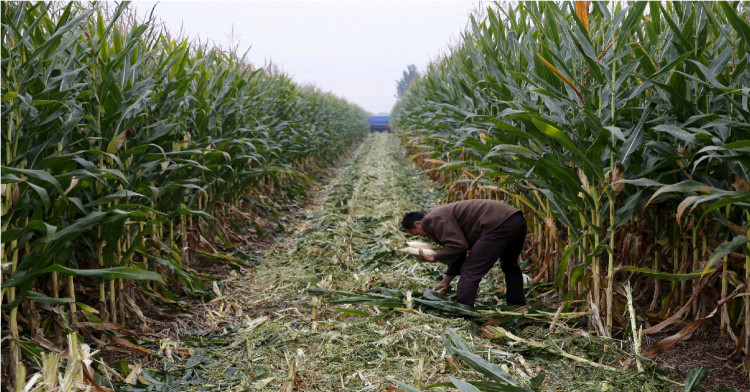Newcomer B2B e-commerce platform fupin832.com reports sales topped 3.1 billion yuan ($455.2 million) since its launch Jan. 1. It tapped into China's e-commerce economy in assisting the government's goal to eliminate poverty - even in the country's most rural regions.
Standing With Farmers
fupin832.com doesn't charge commercial fees for farmer suppliers. It bridges farm goods producers with authorized enterprises to alleviate poverty, it said.
From selling homemade sausages to processed bean oils, it covers more than 68,000 agricultural products - mostly little-known brands in 832 counties that were or are on the state list of poor areas. The government has promised to end poverty. To use fupin832.com enterprises register official information and receive the authority's approval.
It was jointly established by the All China Federation of Supply and Marketing Cooperatives, the Ministry of Commerce and the State Council Leading Group Office of Poverty Alleviation and Development. It provides services including online display, online trading and logistics tracking.
Starting from Sept. 16, it showed product suppliers' information and encouraged public supervision. The authorities said they would inspect it from Oct. 11 to make sure all products sold were cheaper than market prices and would ban false information or any entity misusing the opportunity to inflate profits.
Harvesting E-Commerce Success
In recent years, many online shopping apps have cooperated with local authorities to sell agricultural products. As of 2019, sales revenues of online retailers in poor counties topped 239.2 billion yuan - a 33% year-on-year rise. It provided 5 million farmers with new employment and increased incomes, according to statistics by the Ministry of Commerce.
E-commerce companies JD.com, Suning, Alibaba and Pinduoduo have launched campaigns to increase rural penetration. To stimulate sales during the pandemic there was an "online shopping festival" June 18 that saw an e-commerce boom across rural regions. More than 1.2 million suppliers on Taobao and Tmall are reportedly from poor counties.
In July, nearly 75 million people visited a 14-hour livestream event held on Pinduoduo for 88 kinds of local products in southwest China's Lhasa, the capital of the Tibet Autonomous Region that spurred an 890% turnover increase.
Reaching The Goal
The country's goal is to fully alleviate poverty in rural areas by the end of 2020.
Since 2016, the National Development and Reform Commission has introduced policies encouraging the establishment of e-commerce companies supporting impoverished areas to elevate product sales. This policy is focused on "Three Regions and Three Prefectures."
The "Three regions" refers to the Tibet Autonomous Region, Yunnan Province and the south of the Xinjiang Autonomous Region. Meanwhile, the "Three Prefectures" are the Liangshan Prefecture in Sichuan, the Nujiang Prefecture in Yunnan and the Linxia Prefecture in Gansu.
NDRC said in 2017 that the mission was to see more than 1 million young people in poor counties become skilled in e-commerce business, while 10 million people in these counties gain business training by 2020.
As of June 2020, all of the 832 designated poor counties had e-commerce business service centers with 96.6% of them including local distribution bases, China Daily reported.





